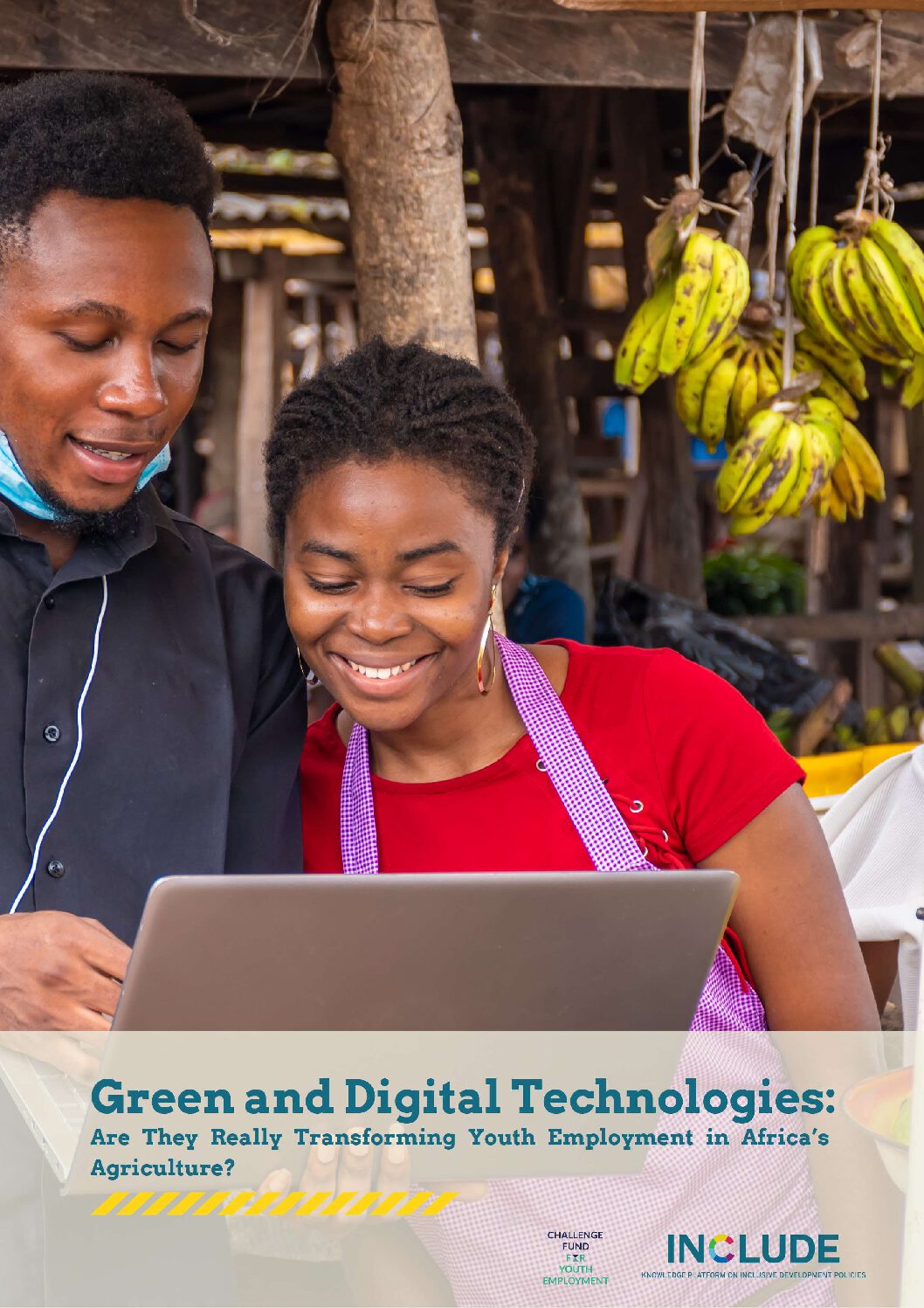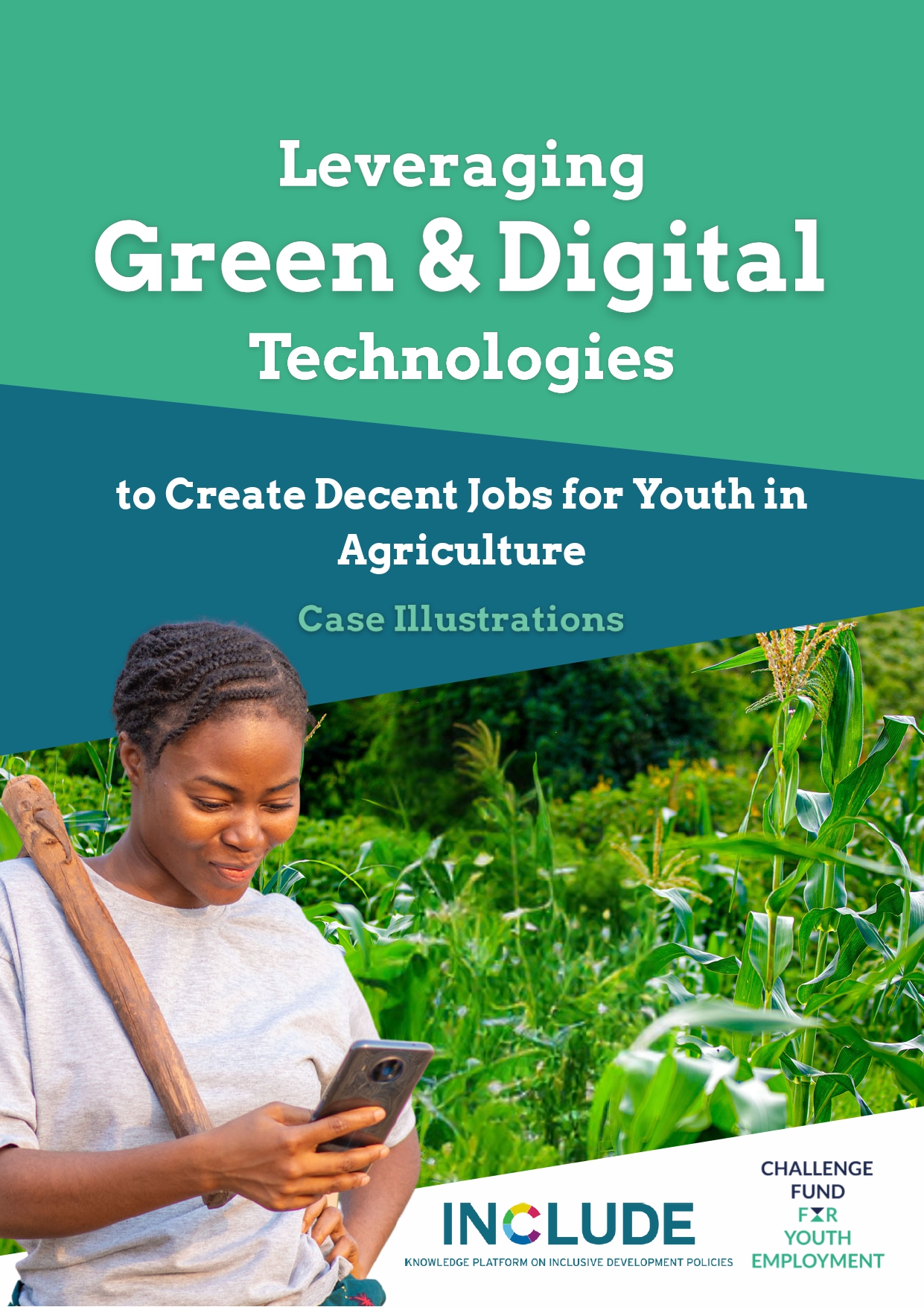The INCLUDE knowledge platform and the Challenge Fund for Youth Employment (CFYE) launched a third phase of their research partnership on Green Jobs and the Future of Work to critically examine the potential and the challenges related to equitable participation of young people in employment opportunities at green and digitally-enabled agribusinesses. […] This research takes an action-oriented approach, actively involving various stakeholders—youth, the
private sector, and civil society—in the research process, in order to distill lessons learned and best practices to support agribusinesses in facilitating youth employment. Given the private sector’s key role in promoting youth employment in agriculture, the research was initiated by means of a kick-off meeting
with around 20 colleagues from CFYE, their implementing partners, and agribusinesses across Africa. […] Their insights provided a clearer understanding of the digital and green technologies in use, the barriers and drivers they face, and validated the research questions. Looking at both types of technologies and the broad array of categories of examples shows that green and digital technologies assist agricultural actors, including agribusinesses, in various ways to
boost productivity efficiently and sustainable while fostering climate-friendly and inclusive practices, and that there is a considerable amount of overlap between them.
Transforming food systems has become a pressing priority for many African countries striving for sustainability, equity, and resilience in the face of climate, demographic, and economic pressures. Recent forums, such as the 2023 African Union Summit on Food Systems and Africa Climate Summit, have emphasised the urgent need to create just food systems that deliver not only nutritious food and sustainable production, but also inclusive economic opportunities. Digital and green innovations are widely recognised as key enablers of this transformation. By improving efficiency, sustainability, and market connectivity across the agricultural value chain, these technologies have the potential to unlock new forms of employment. Yet a critical question remains: How can agribusinesses make use of digital and green technologies to contribute to decent jobs for youth in Africa? This report explores how agribusinesses are putting digital and green technologies into practice to unlock jobs for youth, especially for young women and smallholder farming households. It dives into the challenges, opportunities, and best practices from two cases: ThriveAgric in Nigeria and Startup Bootcamp in Senegal. As such, this report aims to inform and inspire agribusinesses and other actors working in agri-food systems by showing what works, and what more is needed, to ensure that youth are not left behind in Africa’s agricultural transformation.
This case study is part of a broader action-oriented research collaboration between the INCLUDE Knowledge Platform and the Challenge Fund for Youth Employment (CFYE) on Green Jobs and the future of work. The first phase of this research project explored how green and digital technologies can drive more meaningful and dignified employment in a transforming agri-food sector. In addition, focus group discussions and in-depth interviews with CFYE-supported agribusinesses, youth content creators and experts in the agri-food sector served to identify how youth and agribusinesses can take advantage of the opportunities and overcome challenges linked to the adoption of green and digital technologies.

